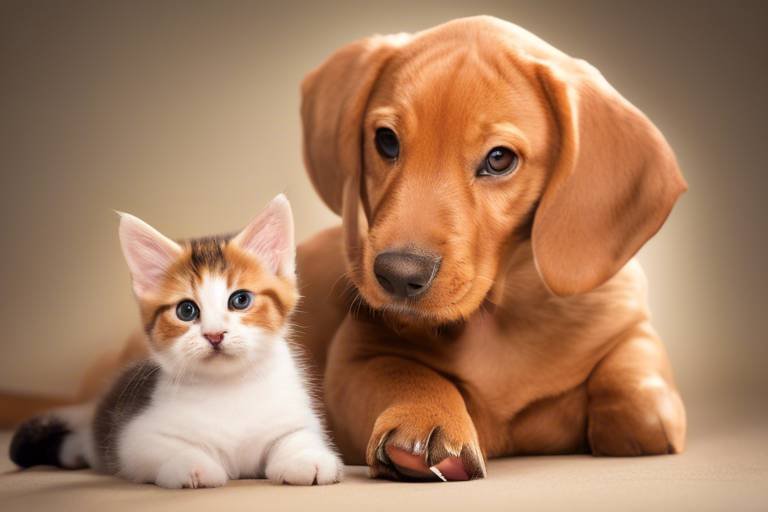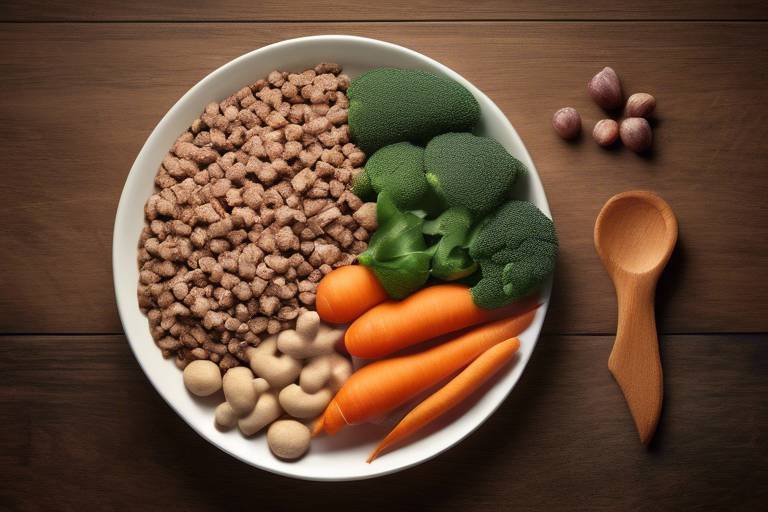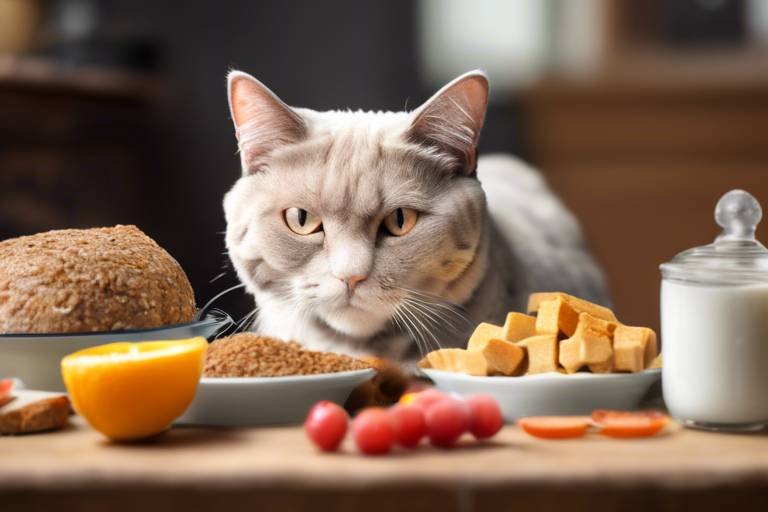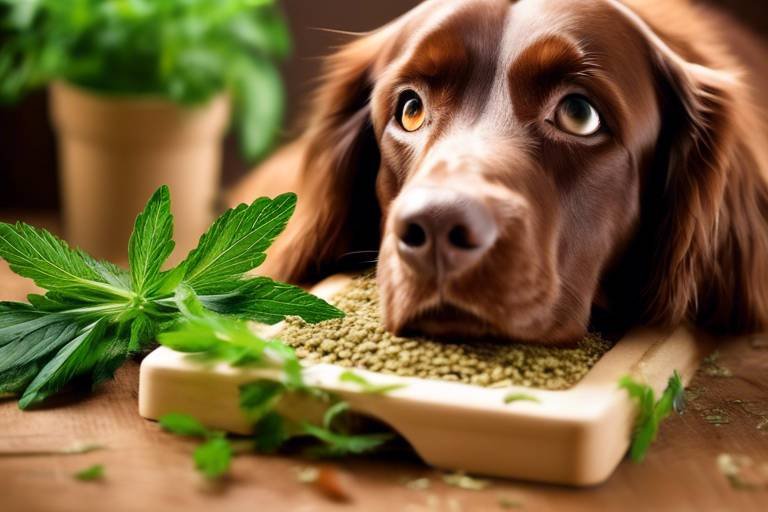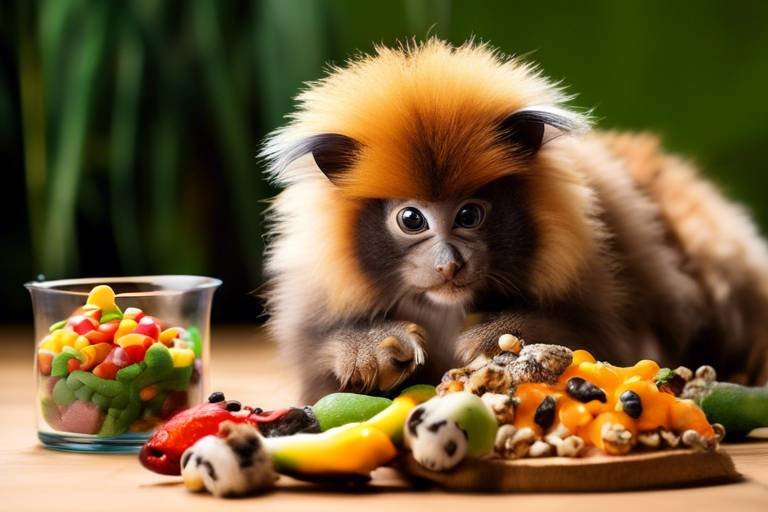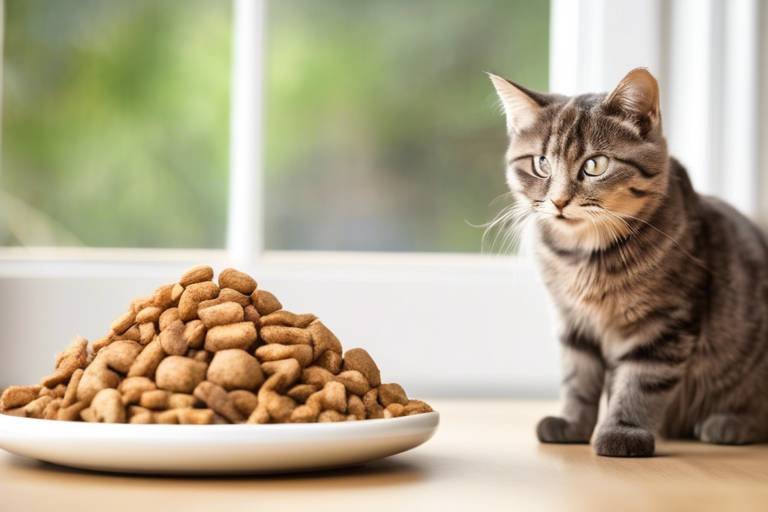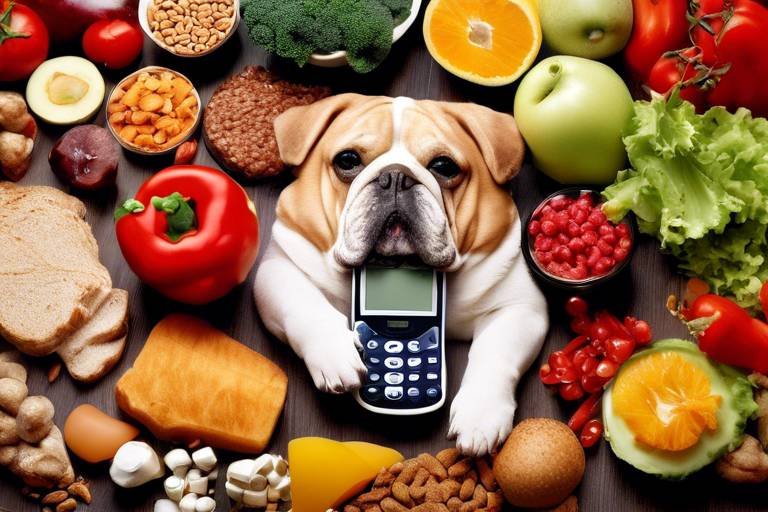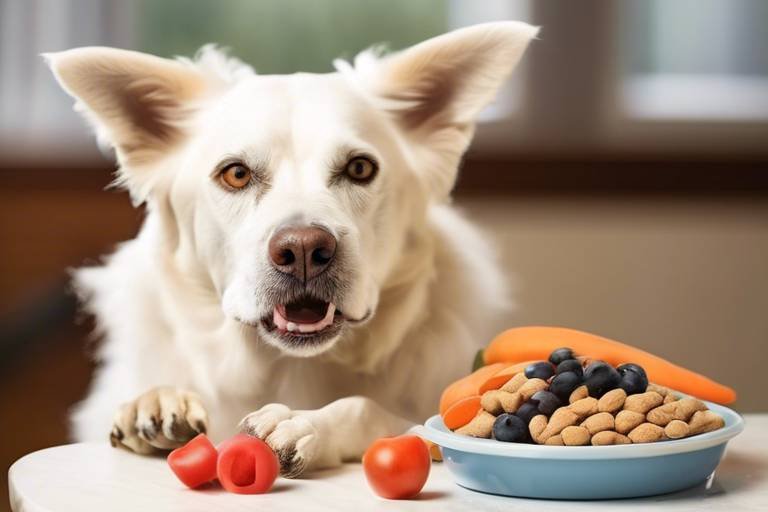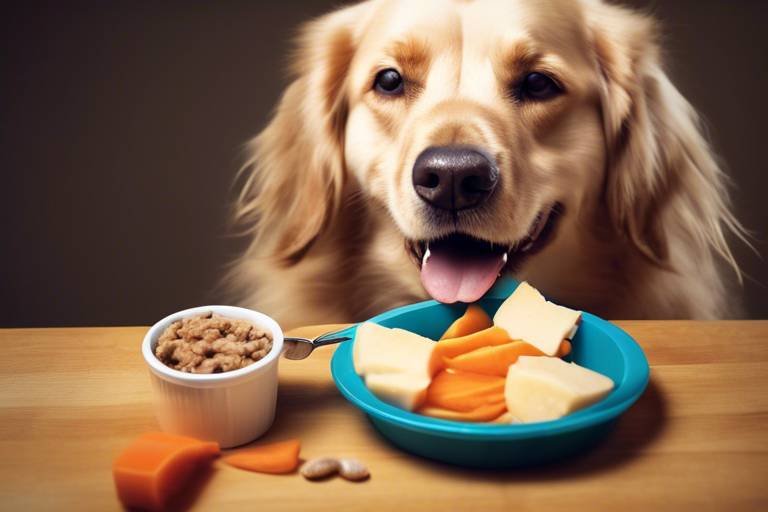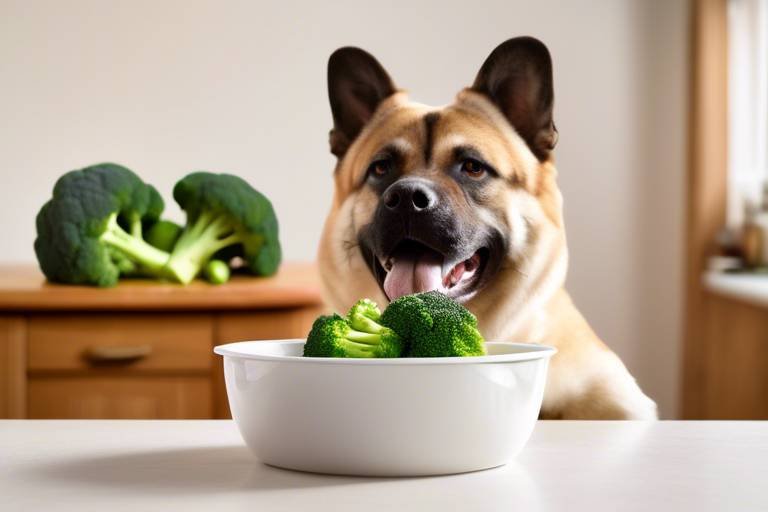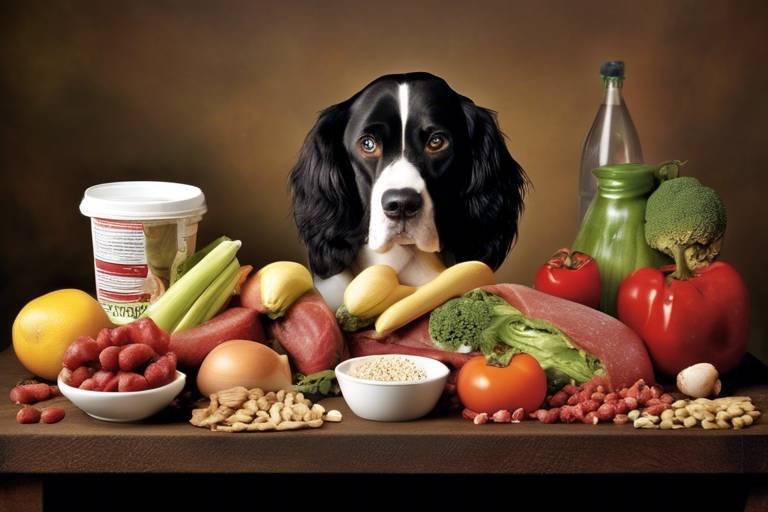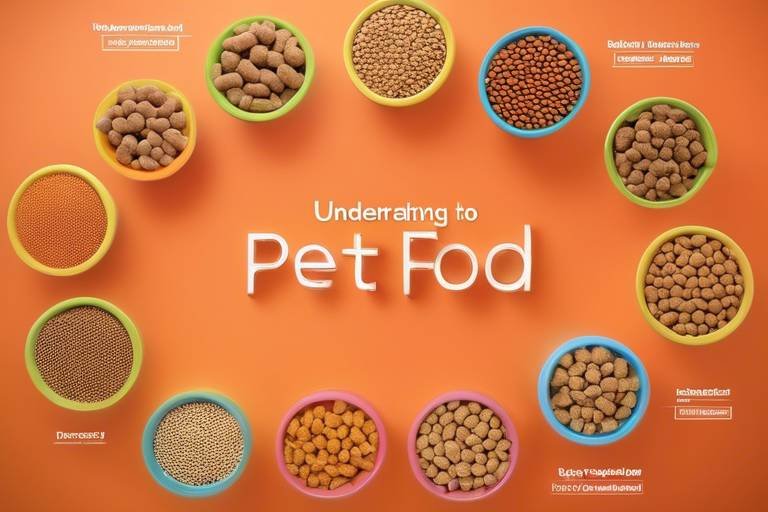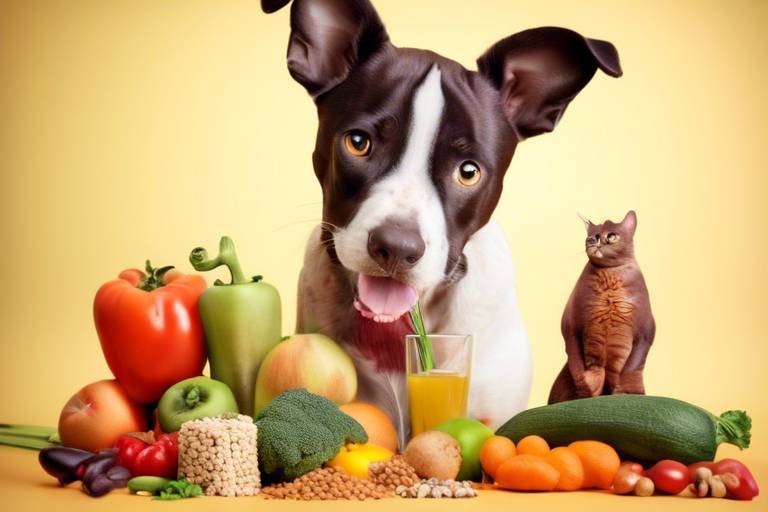Understanding the Role of Nutrition in Pet Reproduction
When it comes to the reproductive health of our beloved pets, one crucial factor often takes the spotlight: nutrition. Just like humans, animals require a balanced diet to thrive, and this need becomes even more pronounced during the breeding process. Imagine a well-tuned machine; every part needs to work harmoniously for optimal performance. Similarly, the right nutrients can significantly influence fertility rates, pregnancy outcomes, and the overall health of both parents and their offspring. So, how does nutrition play such a pivotal role in pet reproduction?
First and foremost, adequate nutrition supports hormonal balance, which is essential for successful mating and conception. Think of hormones as the conductors of an orchestra, ensuring that everything is in sync. If the nutrition is lacking, it can lead to disruptions in this delicate balance, potentially affecting fertility. Furthermore, proper nutrition is vital during gestation and lactation, where the demands on the mother’s body increase significantly. A well-nourished mother is more likely to have a healthy pregnancy and produce robust, thriving young.
It’s also worth noting that the nutritional needs vary between different stages of reproduction. For instance, the dietary requirements of a breeding dog or cat are not the same as those of a pet that is simply a companion. This is where understanding the specific needs of breeding animals becomes essential. Providing the right balance of macronutrients and micronutrients can make all the difference. This article will explore the various aspects of nutrition that directly impact pet reproduction, from the importance of macronutrients to the specific needs during pregnancy and lactation.
In summary, nutrition is not just about filling a bowl with food; it’s about providing the right fuel for a healthy reproductive journey. Just as we wouldn’t expect a race car to perform well on low-quality fuel, we can’t expect our pets to thrive without proper nutrition. By understanding and addressing the nutritional needs of breeding animals, we can help ensure that they are not only healthy but also capable of bringing new life into the world successfully.
- What are the signs of nutritional deficiencies in breeding pets? Look for changes in coat quality, energy levels, and reproductive performance.
- How can I ensure my pregnant pet is getting the right nutrients? Consult with a veterinarian for tailored dietary recommendations and consider high-quality commercial diets designed for pregnant pets.
- Is it safe to give supplements to breeding animals? While some supplements can be beneficial, it’s crucial to consult a veterinarian before adding anything to your pet’s diet.
- What role do fatty acids play in pet reproduction? Essential fatty acids are vital for hormone production and fetal development, making them crucial during pregnancy and lactation.
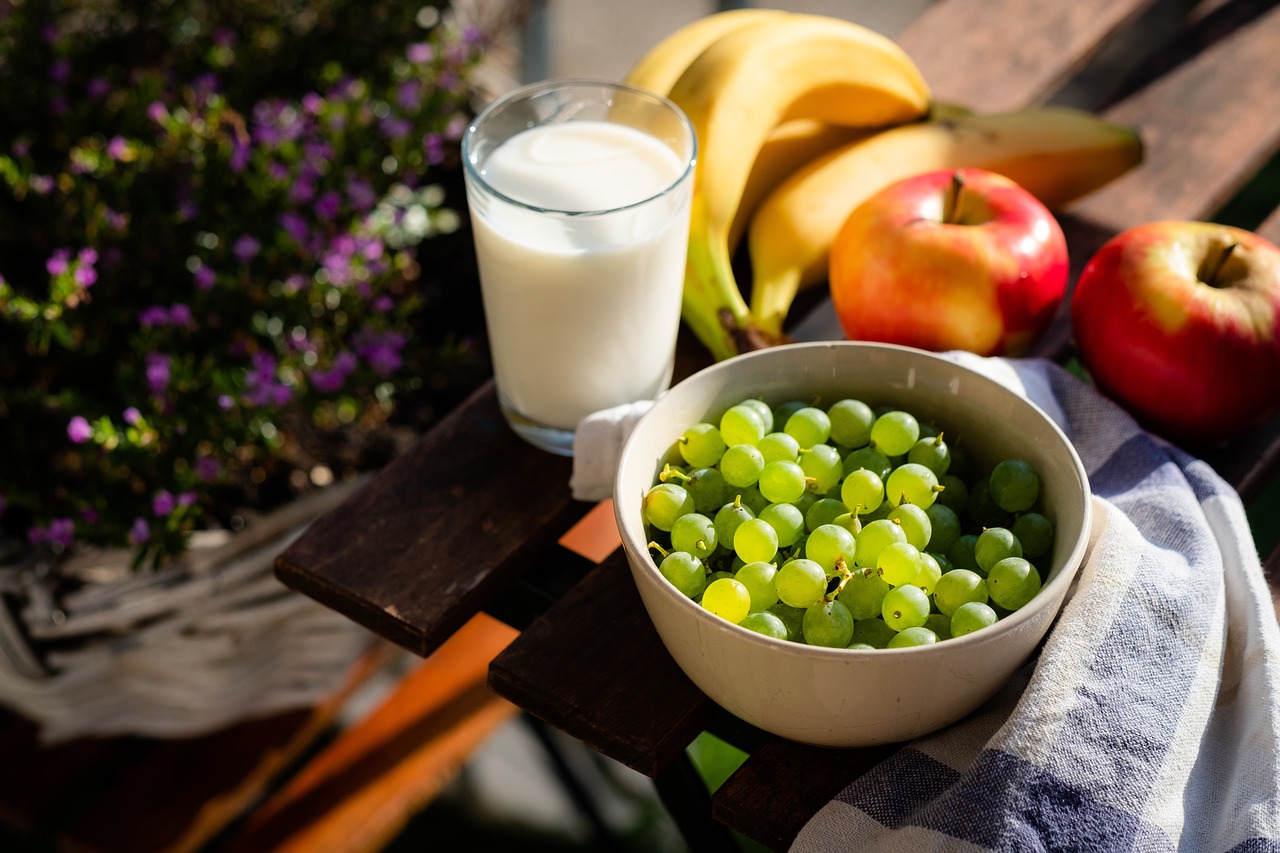
The Importance of Nutrition in Reproductive Health
This article explores how proper nutrition impacts the reproductive health of pets, including the nutritional needs of breeding animals, gestation, lactation, and the overall well-being of both parents and offspring.
When it comes to the reproductive health of our beloved pets, nutrition is not just important; it's essential. Think of it as the foundation of a house; without a solid base, everything else is at risk. The right nutrients can significantly influence fertility rates, pregnancy outcomes, and the health of newborns. If you want your furry friends to thrive during their reproductive cycles, you need to pay close attention to what goes into their bowls.
Adequate nutrition supports hormonal balance, which is crucial for both male and female pets. For instance, males require specific nutrients to produce viable sperm, while females need a well-rounded diet to support egg health and overall reproductive function. Imagine trying to run a marathon on an empty stomach; similarly, pets cannot perform optimally in reproduction without the right fuel.
Moreover, the implications of nutrition extend beyond just the parents. The health of the offspring is directly linked to the nutritional status of the mother during pregnancy and lactation. When a mother receives a balanced diet rich in essential vitamins and minerals, she is more likely to give birth to healthy puppies or kittens. This is where the concept of maternal investment comes into play. A well-nourished mother can provide her young with the best start in life, setting them up for a healthy future.
In summary, the importance of nutrition in reproductive health cannot be overstated. It affects:
- Fertility Rates: Proper nutrition increases the chances of successful mating and conception.
- Pregnancy Outcomes: A well-fed mother is more likely to have a smooth pregnancy and deliver healthy offspring.
- Newborn Health: The nutritional status of the mother directly impacts the health and vitality of her young.
To ensure optimal reproductive health, pet owners should consult with veterinarians to tailor a diet that meets the specific needs of their pets. After all, a little care in nutrition goes a long way in ensuring a happy and healthy family of pets.
Breeding animals have specific nutritional needs that differ from their non-breeding counterparts. Understanding these requirements is essential to ensure optimal reproductive performance and health.
Macronutrients such as proteins, fats, and carbohydrates are vital for breeding pets. Each plays a unique role in supporting reproductive functions and overall energy levels during breeding cycles.
Protein is essential for the development of reproductive tissues and the production of hormones. Adequate protein intake supports the health of both male and female breeding pets.
Fats provide a concentrated source of energy and are vital for hormone production. Essential fatty acids also support fetal development during pregnancy and lactation.
Micronutrients, including vitamins and minerals, are crucial for reproductive health. They support various physiological processes, including hormone synthesis and immune function.
Proper nutrition during pregnancy is critical for the health of both the mother and her developing puppies or kittens. Nutritional needs change significantly during this period.
Pregnant pets require increased levels of certain nutrients, including folic acid and calcium, to support fetal development and prepare for lactation.
Identifying and addressing common nutritional deficiencies can prevent complications during pregnancy and ensure healthier outcomes for both the mother and her offspring.
Lactating pets have heightened nutritional demands to support milk production. Understanding these needs is vital for the growth and health of the nursing young.
Nursing pets typically require significantly more calories to produce milk. Ensuring they receive adequate energy is crucial for their health and the growth of their young.
Proper hydration is essential for lactating pets. Sufficient water intake supports milk production and overall health during this demanding period.
- What are the best foods for breeding pets? Look for high-quality, nutrient-dense foods that contain adequate levels of protein and fats.
- How can I tell if my pet is getting enough nutrition? Regular veterinary check-ups and monitoring your pet's weight and energy levels can help assess their nutritional status.
- Are there any supplements I should consider? Consult with your veterinarian to determine if any specific supplements are necessary for your pet's reproductive health.
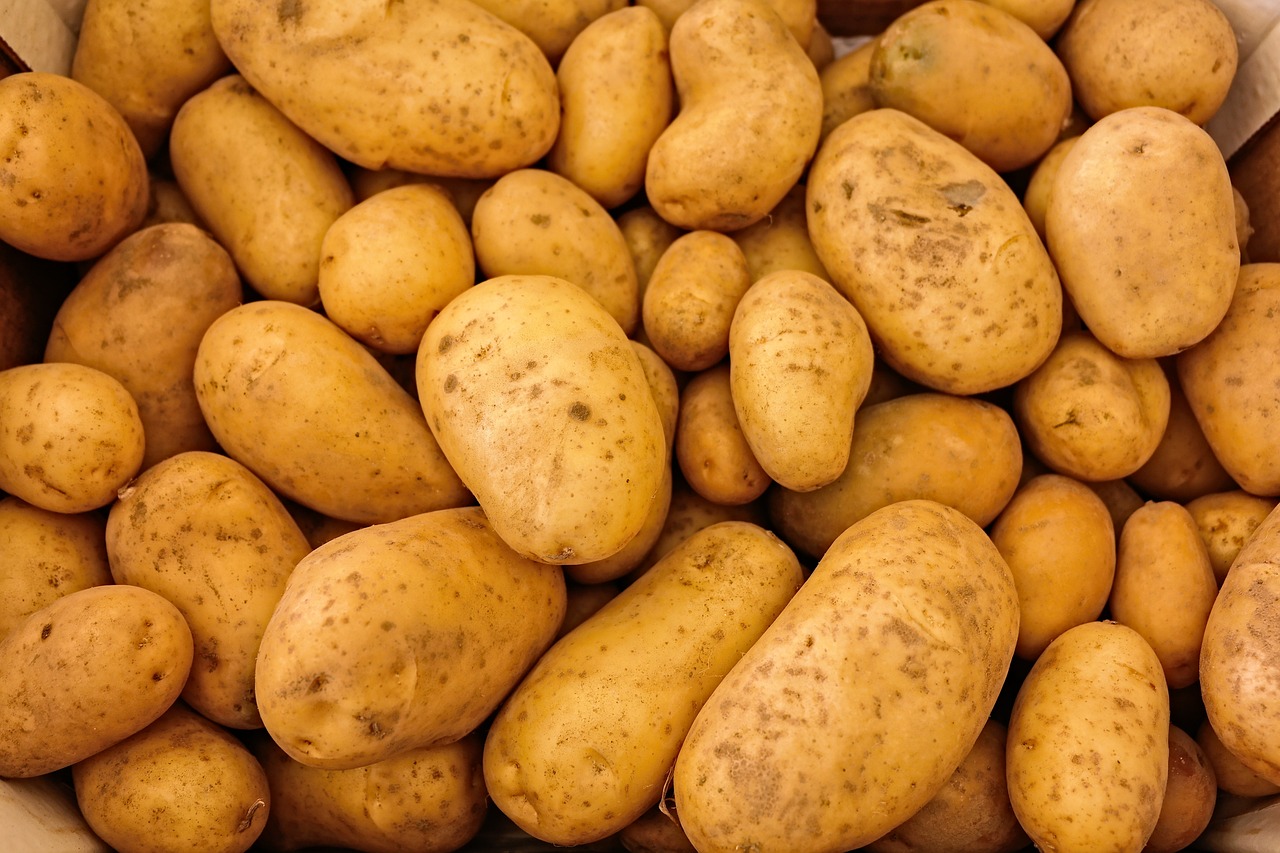
Nutritional Requirements for Breeding Animals
When it comes to breeding animals, understanding their nutritional requirements is not just a good idea—it's essential. Breeding pets, whether they are dogs, cats, or other animals, have specific dietary needs that differ significantly from those of their non-breeding counterparts. This is because the demands of reproduction place additional stress on their bodies, requiring them to have a well-balanced diet that supports their health and the health of their offspring. Just like a well-tuned engine needs the right fuel to perform optimally, breeding animals need the right nutrition to ensure successful reproduction.
To ensure that breeding animals are in peak condition, their diet should be rich in essential macronutrients and micronutrients. Macronutrients include proteins, fats, and carbohydrates, all of which play unique and crucial roles in supporting reproductive functions. For instance, proteins are vital for tissue development and hormone production, while fats provide concentrated energy and are essential for hormone synthesis. On the other hand, carbohydrates are necessary for energy, particularly during the intense periods of breeding cycles.
Moreover, micronutrients—such as vitamins and minerals—are equally important. These tiny but mighty nutrients support various physiological processes, including hormone synthesis, immune function, and overall vitality. A deficiency in any of these essential nutrients can lead to complications, affecting not just the breeding animals but also the health of their future puppies or kittens.
Here’s a quick breakdown of the key nutritional components that should be included in the diet of breeding pets:
| Component | Importance |
|---|---|
| Proteins | Essential for tissue development and hormone production. |
| Fats | Provide energy and support hormone production. |
| Carbohydrates | Necessary for energy during breeding cycles. |
| Vitamins | Support immune function and overall health. |
| Minerals | Essential for bone health and reproductive functions. |
In addition to these components, it’s crucial to monitor the overall caloric intake of breeding animals. Their energy requirements will increase, especially as they approach the breeding phase. This increase in caloric needs can be likened to a car needing more fuel when it’s carrying a heavier load. Therefore, providing a high-quality, energy-dense diet is necessary to meet these elevated demands.
Ultimately, the goal is to create a balanced diet that not only meets the basic needs of breeding animals but also enhances their reproductive performance and overall health. By investing in the right nutrition, pet owners can pave the way for healthier litters and happier pets. So, whether you’re a seasoned breeder or just starting out, remember that nutrition is the cornerstone of reproductive success.
This article explores how proper nutrition impacts the reproductive health of pets, including the nutritional needs of breeding animals, gestation, lactation, and the overall well-being of both parents and offspring.
Nutrition plays a crucial role in maintaining the reproductive health of pets, influencing fertility rates, pregnancy outcomes, and the health of newborns. Adequate nutrition supports hormonal balance and overall vitality.
Breeding animals have specific nutritional needs that differ from their non-breeding counterparts. Understanding these requirements is essential to ensure optimal reproductive performance and health.
When we talk about the health of breeding pets, macronutrients are like the building blocks that support their reproductive systems. These include proteins, fats, and carbohydrates. Each of these macronutrients plays a unique role in ensuring that breeding animals are not only fertile but also healthy and energetic during their breeding cycles.
Proteins are particularly crucial as they are essential for the development of reproductive tissues and the production of hormones. Think of proteins as the construction workers that build and repair the body. They help in the formation of eggs in females and sperm in males. Without adequate protein intake, breeding pets may experience lower fertility rates and complications during gestation.
Next up is fat, which is often misunderstood. Many people think of fat as something to avoid, but in the world of breeding pets, fats are vital. They provide a concentrated source of energy, which is necessary during the energy-demanding breeding cycles. Moreover, essential fatty acids, particularly omega-3 and omega-6, are crucial for hormone production and fetal development. Imagine fats as the fuel that keeps the engine running smoothly, especially when the stakes are high, like during reproduction.
Lastly, let’s not forget about carbohydrates. While they are not as critical as proteins and fats, they still play a role in providing energy. Carbohydrates are like the quick snacks that give a burst of energy when needed. They can help maintain stamina during breeding and ensure that the body has enough energy to support reproductive functions.
In summary, a balanced diet rich in these macronutrients is essential for breeding pets. A well-rounded approach to nutrition not only enhances reproductive performance but also contributes to the overall health and vitality of both the parents and their offspring. To put it simply, if you want your pets to thrive during reproduction, you need to fuel them with the right nutrients!
Proper nutrition during pregnancy is critical for the health of both the mother and her developing puppies or kittens. Nutritional needs change significantly during this period.
Pregnant pets require increased levels of certain nutrients, including folic acid and calcium, to support fetal development and prepare for lactation.
Identifying and addressing common nutritional deficiencies can prevent complications during pregnancy and ensure healthier outcomes for both the mother and her offspring.
Lactating pets have heightened nutritional demands to support milk production. Understanding these needs is vital for the growth and health of the nursing young.
Nursing pets typically require significantly more calories to produce milk. Ensuring they receive adequate energy is crucial for their health and the growth of their young.
Proper hydration is essential for lactating pets. Sufficient water intake supports milk production and overall health during this demanding period.
- What are the signs of poor nutrition in breeding pets? Look for signs such as weight loss, lethargy, and reproductive issues.
- How can I ensure my pet is getting enough protein? Consult with your veterinarian about high-quality protein sources suitable for your pet's needs.
- Are there specific diets recommended for pregnant or lactating pets? Yes, specialized diets are available that cater to the increased nutritional demands during these stages.
When it comes to breeding pets, protein is not just another nutrient; it’s the cornerstone of reproductive health. Think of protein as the building blocks of life, essential for creating tissues and hormones that are crucial during the breeding cycle. Just like a construction crew needs quality materials to build a sturdy house, breeding animals require adequate protein to ensure their reproductive systems function optimally.
During the breeding phase, both male and female pets experience increased demands for protein. For males, protein is vital for the production of healthy sperm, while females need it for the development of reproductive tissues and the growth of their future offspring. If you picture a garden, the seeds (or sperm) need rich soil (or protein) to grow into strong plants (or puppies and kittens). Without enough protein, you risk compromising fertility rates and overall reproductive success.
But how much protein do breeding pets actually need? The general recommendation is to provide a diet that contains at least 25-30% protein for breeding females and around 20-25% for males. However, these figures can vary based on the pet's size, breed, and specific health needs. It's essential to consult with a veterinarian or a pet nutrition expert to tailor the protein intake to your pet's individual requirements.
Moreover, not all proteins are created equal. High-quality protein sources, such as chicken, fish, and eggs, are more beneficial than lower-quality fillers. These premium sources provide the essential amino acids that are crucial for hormone production and tissue repair. If you're unsure about the protein content in your pet's diet, consider checking the label on commercial pet foods or discussing it with your vet.
In summary, ensuring that your breeding pets receive adequate protein is not just about meeting a dietary requirement; it’s about nurturing their reproductive potential. A protein-rich diet supports hormonal balance, enhances fertility, and ultimately contributes to the health of both parents and their future litters. So, the next time you think about your pet's diet, remember that protein is a powerhouse nutrient that plays a pivotal role in their reproductive journey.
- What types of protein are best for breeding pets? High-quality animal proteins such as chicken, turkey, fish, and eggs are excellent choices.
- Can I use supplements to meet my pet's protein needs? While supplements can help, it's best to focus on a balanced diet first. Always consult your vet before adding supplements.
- How can I tell if my pet is getting enough protein? Look for signs of good health, such as a shiny coat, healthy weight, and energy levels. Regular vet check-ups can also help assess nutritional needs.
When we talk about reproductive health in pets, it's easy to overlook the importance of fats. However, these macronutrients play a vital role in ensuring that breeding animals remain healthy and capable of producing healthy offspring. Just like a car needs fuel to run smoothly, pets require fats for energy and optimal bodily functions, especially during the demanding phases of breeding, pregnancy, and lactation.
Fats are not just a source of energy; they are also essential for the production of hormones. Hormones like estrogen and testosterone are crucial for reproductive health, and their synthesis is heavily dependent on the availability of fats in the diet. Without sufficient fat intake, pets can experience hormonal imbalances that may lead to fertility issues or complications during pregnancy.
Moreover, certain types of fats, particularly essential fatty acids (EFAs), are crucial for fetal development during pregnancy. These fatty acids, which include omega-3 and omega-6, support the growth of the brain and nervous system in developing puppies and kittens. A deficiency in these essential fats can lead to suboptimal growth and development, setting the stage for potential health issues later in life.
To give you a clearer picture, here’s a quick overview of how fats benefit reproductive health:
| Type of Fat | Benefits |
|---|---|
| Omega-3 Fatty Acids | Promote healthy fetal development and reduce inflammation. |
| Omega-6 Fatty Acids | Support skin health and hormone production. |
| Monounsaturated Fats | Provide energy and support overall health. |
| Saturated Fats | Important for hormone production, but should be consumed in moderation. |
It's important to note that while fats are essential, they should be included in the diet in the right proportions. Too much fat can lead to obesity, which poses its own set of reproductive challenges. Therefore, it’s crucial to consult with a veterinarian to determine the appropriate fat content in your pet's diet based on their specific needs and life stage.
In summary, fats are not merely an afterthought in the diet of breeding pets; they are a fundamental component that supports reproductive health, hormone production, and the development of healthy offspring. Paying attention to the type and amount of fat in your pet's diet can make a significant difference in their reproductive success and overall well-being.
- What types of fats should I include in my pet's diet? It's best to include sources of omega-3 and omega-6 fatty acids, such as fish oil or flaxseed oil, along with moderate amounts of other healthy fats.
- How can I tell if my pet is getting enough fat? A shiny coat, healthy skin, and good energy levels are indicators of adequate fat intake. Consult your vet for specific dietary recommendations.
- Can too much fat harm my pet? Yes, excessive fat can lead to obesity and related health issues, including reproductive problems. Balance is key.
When it comes to the reproductive health of our beloved pets, micronutrients play a pivotal role that often goes unnoticed. These tiny yet mighty elements, including vitamins and minerals, are essential for various physiological processes that support not only the reproductive system but also the overall well-being of our furry friends. Think of micronutrients as the unsung heroes of nutrition, working quietly behind the scenes to ensure everything runs smoothly.
For breeding animals, an adequate supply of micronutrients is crucial. They contribute to hormone synthesis, immune function, and cellular health, all of which are vital during the breeding cycle. For instance, vitamin E acts as a powerful antioxidant, protecting reproductive cells from damage, while zinc is essential for testosterone production in males and plays a role in ovulation in females. Without these micronutrients, the reproductive health of pets can suffer significantly, leading to decreased fertility rates and unhealthy offspring.
Let’s break down some of the key micronutrients that are particularly important for breeding pets:
- Vitamins: Essential for various bodily functions, vitamins like A, D, E, and K support reproductive health by promoting hormone balance and enhancing immune response.
- Minerals: Calcium and phosphorus are crucial for bone development in offspring, while magnesium plays a role in muscle function and overall health.
- Antioxidants: Micronutrients such as selenium and vitamin C help combat oxidative stress, which can negatively impact fertility and fetal development.
To illustrate the importance of these micronutrients, consider a study that shows a direct correlation between adequate vitamin intake and improved reproductive outcomes in pets. For example, dogs that received a diet enriched with essential vitamins and minerals had a higher conception rate and healthier litters compared to those on a standard diet. This highlights the undeniable fact that a well-rounded diet rich in micronutrients is not just beneficial but essential for breeding pets.
Moreover, the balance of these micronutrients is equally important. Too much or too little can lead to complications. For instance, an excess of certain vitamins can lead to toxicity, while deficiencies can result in serious health issues. Therefore, it’s vital for pet owners to consult with veterinarians or pet nutritionists to tailor a diet that meets the specific needs of their breeding animals.
In summary, micronutrients are not just supplementary; they are integral to the reproductive success and health of our pets. Ensuring that breeding animals receive a diet rich in these essential nutrients can lead to better fertility rates, healthier pregnancies, and thriving offspring. So, the next time you think about your pet's diet, remember that it's not just about the macronutrients; those tiny micronutrients are working hard to keep your furry family members healthy and happy.
Q: What are micronutrients?
A: Micronutrients are vitamins and minerals that are essential for various bodily functions, including reproductive health. They are required in smaller amounts compared to macronutrients but are crucial for overall well-being.
Q: Why are micronutrients important for breeding pets?
A: Micronutrients support hormone synthesis, immune function, and cellular health, all of which are vital for fertility and healthy offspring.
Q: How can I ensure my pet is getting enough micronutrients?
A: Consult with a veterinarian or pet nutritionist to create a balanced diet that includes a variety of foods rich in essential vitamins and minerals.
Q: Can too many micronutrients be harmful?
A: Yes, an excess of certain vitamins and minerals can lead to toxicity, so it’s important to maintain a balanced intake through proper diet.
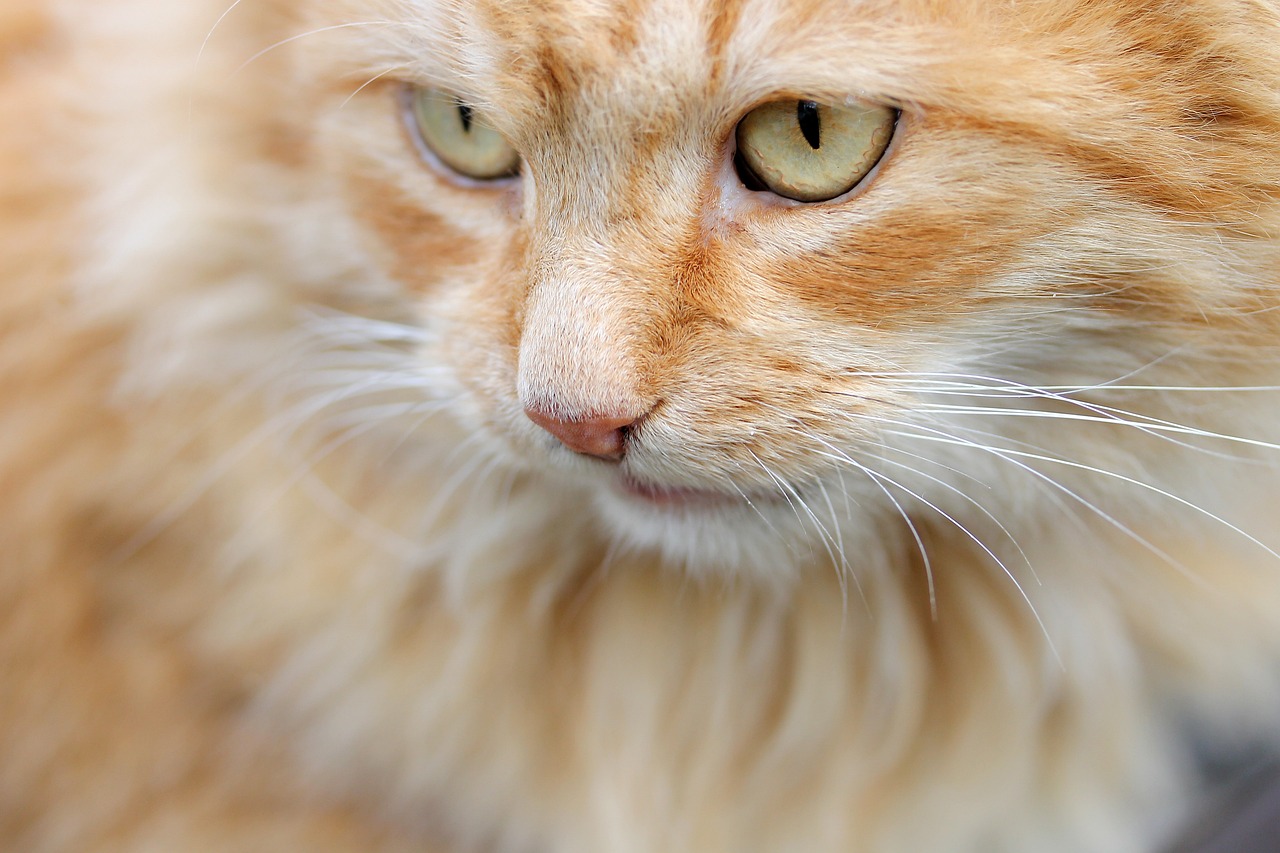
This article explores how proper nutrition impacts the reproductive health of pets, including the nutritional needs of breeding animals, gestation, lactation, and the overall well-being of both parents and offspring.
Nutrition plays a crucial role in maintaining the reproductive health of pets, influencing fertility rates, pregnancy outcomes, and the health of newborns. Adequate nutrition supports hormonal balance and overall vitality.
Breeding animals have specific nutritional needs that differ from their non-breeding counterparts. Understanding these requirements is essential to ensure optimal reproductive performance and health.
Macronutrients such as proteins, fats, and carbohydrates are vital for breeding pets. Each plays a unique role in supporting reproductive functions and overall energy levels during breeding cycles.
Protein is essential for the development of reproductive tissues and the production of hormones. Adequate protein intake supports the health of both male and female breeding pets.
Fats provide a concentrated source of energy and are vital for hormone production. Essential fatty acids also support fetal development during pregnancy and lactation.
Micronutrients, including vitamins and minerals, are crucial for reproductive health. They support various physiological processes, including hormone synthesis and immune function.
Proper nutrition during pregnancy is critical for the health of both the mother and her developing puppies or kittens. Just like a building needs a strong foundation, a pregnant pet requires a well-balanced diet to support the growth and development of her offspring. During this time, nutritional needs change significantly, and providing the right nutrients can make all the difference. For example, pregnant pets need increased levels of certain vitamins and minerals to support fetal development and prepare for lactation.
Some of the essential nutrients for pregnant pets include:
- Folic Acid: This vitamin is vital for DNA synthesis and cell division, making it crucial for the rapid growth of fetal tissues.
- Calcium: Essential for the development of strong bones and teeth in the puppies or kittens, calcium also plays a role in muscle function and nerve transmission.
- Iron: Important for the formation of hemoglobin, iron helps prevent anemia in the mother and ensures that the developing young receive adequate oxygen.
It's important to monitor the pregnant pet's diet closely. Common nutritional deficiencies can lead to complications during pregnancy, such as low birth weight, developmental issues, or even pregnancy loss. For instance, a lack of calcium can result in eclampsia, a serious condition characterized by muscle tremors and seizures due to low blood calcium levels.
To ensure that your pet receives the right balance of nutrients, consider consulting with a veterinarian or a pet nutritionist. They can help create a tailored diet plan that meets the unique needs of your pregnant pet. This proactive approach not only enhances the health of the mother but also contributes to the well-being of her future puppies or kittens.
- What should I feed my pregnant pet? A balanced diet rich in proteins, fats, vitamins, and minerals is essential. Consult your vet for specific recommendations.
- How can I tell if my pregnant pet is getting enough nutrition? Signs include healthy weight gain, good coat condition, and overall energy levels. Regular vet check-ups can help monitor her health.
- Are there any foods I should avoid during pregnancy? Yes, avoid raw foods, high-fat treats, and any human foods that are toxic to pets, such as chocolate or grapes.
When it comes to the health of pregnant pets, providing the right nutrients is akin to laying a strong foundation for a house. Just as a sturdy base is essential for a home to withstand storms, the right nutrition ensures that a mother and her developing offspring thrive. During pregnancy, pets experience a surge in nutritional requirements, and understanding these needs is crucial for both the mother’s health and the proper development of her young.
One of the most critical nutrients for pregnant pets is folic acid. This B-vitamin plays a significant role in cell division and is vital for the development of the fetal nervous system. Low levels of folic acid can lead to serious developmental issues in the puppies or kittens. Additionally, calcium is another essential nutrient during this stage. It is necessary for building strong bones and teeth in the developing young and helps the mother maintain her own bone health as well.
Moreover, omega-3 fatty acids are incredibly beneficial during pregnancy. These healthy fats support fetal brain development and can contribute to healthier outcomes for the offspring. It’s like giving them a head start in life, setting the stage for cognitive function and overall health. Alongside omega-3s, a balance of omega-6 fatty acids is also important, as they play a role in the inflammatory response and overall health of the mother.
To ensure that pregnant pets receive these essential nutrients, consider a high-quality diet that includes:
- High-quality protein sources - such as chicken, fish, or lamb, which are necessary for tissue development.
- Whole grains - like brown rice or oatmeal, which provide energy and fiber.
- Fruits and vegetables - such as blueberries and carrots, which are rich in vitamins and antioxidants.
It's also important to monitor the mother's body condition throughout her pregnancy. A pet that is too thin may not have sufficient reserves to support her growing young, while an overweight pet may face complications during delivery. Regular check-ups with a veterinarian can help tailor the diet to meet the specific needs of the pregnant pet.
In conclusion, understanding and meeting the nutritional requirements of pregnant pets is not just about feeding them more; it’s about feeding them right. By focusing on essential nutrients like folic acid, calcium, and healthy fats, pet owners can help ensure the health of both the mother and her offspring, paving the way for a joyful and healthy future.
Focus on a high-quality diet that includes protein, healthy fats, and a variety of fruits and vegetables. Consult with your veterinarian for specific recommendations.
Generally, you should increase her food intake gradually, especially in the last trimester. It's best to consult your vet for personalized advice based on your pet's size and health.
Supplements like folic acid and omega-3 fatty acids can be beneficial. However, always check with your veterinarian before adding any supplements to your pet's diet.
Regular vet check-ups are essential. You should also monitor her weight and overall health. A shiny coat, good energy levels, and a healthy appetite are good signs.
During pregnancy, pets undergo significant physiological changes that demand a higher intake of essential nutrients. Unfortunately, many pet owners may not fully understand the specific nutritional needs of their pregnant animals, leading to common deficiencies that can adversely affect both the mother and her developing offspring. A lack of vital nutrients can result in complications such as low birth weights, developmental issues, and even increased mortality rates among newborns.
One of the most critical nutrients that pregnant pets often lack is folic acid. This B-vitamin is essential for DNA synthesis and cell division, making it crucial for the development of the fetus. Insufficient folic acid can lead to serious birth defects and complications during delivery. Alongside folic acid, calcium is another nutrient that pregnant pets frequently fall short on. Calcium is vital not only for the formation of strong bones in the developing puppies or kittens but also for the mother’s health, as it supports her muscle function and helps prevent conditions like eclampsia.
Additionally, iron deficiency is commonly observed in pregnant pets. Iron is essential for the production of hemoglobin, which carries oxygen in the blood. A lack of iron can lead to anemia, causing fatigue and weakness in the mother, which can affect her ability to care for her young. Moreover, omega-3 fatty acids are often overlooked, yet they play a crucial role in fetal brain development and can help with the overall health of the mother, supporting her immune function during this critical time.
To help pet owners better understand these deficiencies, here’s a quick overview of the most common nutritional shortfalls in pregnant pets:
| Nutrient | Importance | Consequences of Deficiency |
|---|---|---|
| Folic Acid | Supports DNA synthesis and cell division | Birth defects and complications during delivery |
| Calcium | Essential for bone development and muscle function | Weak bones in young and risk of eclampsia in mothers |
| Iron | Crucial for hemoglobin production | Anemia, fatigue, and weakness |
| Omega-3 Fatty Acids | Supports fetal brain development and immune health | Poor brain development and weakened immune response |
Recognizing and addressing these deficiencies can significantly improve the health of both the mother and her offspring. Regular veterinary check-ups and consultations can help identify any potential nutritional gaps, ensuring that pregnant pets receive a balanced diet tailored to their unique needs. Moreover, pet owners should consider high-quality commercial diets specifically formulated for pregnant and lactating pets, as these often contain the necessary nutrients in appropriate amounts.
In conclusion, understanding the common nutritional deficiencies that pregnant pets face is essential for any responsible pet owner. By ensuring that their furry friends receive a well-rounded diet rich in essential vitamins and minerals, pet owners can promote healthier pregnancies and happier, more robust litters.
- What are the signs of nutritional deficiencies in pregnant pets? Common signs include lethargy, poor coat condition, and developmental issues in the offspring.
- How can I ensure my pregnant pet gets the right nutrition? Consult your veterinarian for dietary recommendations and consider high-quality commercial diets designed for pregnant animals.
- Are there specific supplements I should give my pregnant pet? Folic acid, calcium, and omega-3 fatty acids are often recommended, but always consult your vet before adding supplements.

When it comes to lactation, the nutritional needs of nursing pets soar to new heights. Just like a chef preparing a gourmet meal, a lactating pet requires the right ingredients to whip up the most nourishing milk for her young. This period is crucial not just for the mother but also for the health and growth of her puppies or kittens. The challenge lies in ensuring that the mother receives adequate nutrition to meet her heightened demands. If we think of the mother as a powerhouse, her energy levels must be at their peak to support both her own health and that of her little ones.
During lactation, a nursing pet's caloric intake can increase by as much as 25-50% compared to her pre-pregnancy needs. This means that not only does she need to consume more food, but the quality of that food must also be top-notch. It’s like fueling a high-performance vehicle; regular gas won’t cut it when you need to go full throttle. So, what does this mean in practical terms? Let’s break it down:
| Nutritional Component | Recommended Amount |
|---|---|
| Calories | 25-50% increase |
| Protein | At least 22-32% of total diet |
| Fat | At least 15-25% of total diet |
| Calcium | 1.5-2 times the normal requirement |
As we can see from the table above, protein and fat are essential for maintaining energy levels and supporting milk production. Think of protein as the building blocks that help in creating the milk, while fats provide the energy needed for the demanding job of nursing. Additionally, calcium is vital for milk production and helps in the overall health of both the mother and her young.
But it’s not just about the quantity of food; the quality matters too. A well-balanced diet rich in high-quality ingredients will ensure that the mother is not only producing enough milk but that it’s also packed with the necessary nutrients for her growing offspring. This includes essential fatty acids, vitamins, and minerals. So, a diet that includes a mix of high-quality commercial pet food, along with some home-cooked meals, can be a great way to provide balanced nutrition. Just like we wouldn’t want to feed our kids junk food, the same applies to our furry friends!
Hydration is another crucial aspect during lactation. Just like a plant needs water to grow, a nursing pet needs plenty of fluids to support milk production. Dehydration can severely impact milk supply and the overall health of the mother. Always ensure that fresh water is readily available for her. Consider providing wet food as well, as it can contribute to her overall hydration levels.
In conclusion, the nutritional demands during lactation are significant. Providing a nursing pet with a balanced diet rich in calories, protein, fats, and essential nutrients, along with ensuring proper hydration, is key to supporting her and her young ones. Remember, a well-fed mother is a happy mother, and that happiness translates into healthy puppies or kittens!
- What should I feed my lactating pet? A high-quality commercial pet food that is specifically formulated for nursing mothers is ideal. You can also supplement with cooked meats and vegetables.
- How can I ensure my nursing pet stays hydrated? Always have fresh water available and consider incorporating wet food into her diet.
- How do I know if my pet is getting enough nutrition? Monitor her weight and the health of her puppies or kittens. If they are gaining weight and seem healthy, she is likely getting enough nutrition.
Nursing pets are in a unique phase of their lives where their energy demands skyrocket, akin to a marathon runner needing to refuel after a grueling race. During lactation, a female pet's body works tirelessly to produce milk, which is essential for the growth and development of her young. This increased energy expenditure means that caloric intake must be significantly elevated to meet the nutritional needs of both the mother and her nursing offspring.
To give you a clearer picture, let's consider that a lactating dog may require up to twice the number of calories she would typically need. This is not just about quantity, though; the quality of the food also plays a critical role. Foods that are rich in protein and fat are ideal, as they provide the concentrated energy nursing pets need. Think of it as filling up a high-performance sports car; you wouldn't just put in regular fuel, right? You'd opt for premium to ensure it runs smoothly and efficiently!
When formulating a diet for nursing pets, it's essential to focus on the following:
- High-Quality Protein: Essential for milk production and the overall health of the mother.
- Healthy Fats: Provide concentrated energy and are crucial for hormone production.
- Complex Carbohydrates: Offer sustained energy and help maintain stable blood sugar levels.
Additionally, consider introducing multiple small meals throughout the day rather than sticking to a traditional feeding schedule. This approach not only helps in meeting caloric needs but also aids in digestion. Just like humans, pets can benefit from frequent, smaller meals that keep their energy levels consistent.
It's also vital to monitor the mother's weight and condition throughout the nursing period. If she starts to lose weight or appears lethargic, it may be a sign that her caloric intake isn't sufficient. In such cases, consulting a veterinarian can provide tailored advice on dietary adjustments.
In summary, ensuring that nursing pets receive an adequate caloric intake is crucial for their health and the well-being of their young. By focusing on high-quality, energy-dense foods and adjusting feeding practices, pet owners can help their furry friends thrive during this demanding phase of life.
- How much should I increase my nursing pet's food intake?
It’s generally recommended to increase their caloric intake by 50% to 100%, depending on the size of the litter and the individual pet's needs. - Can I use regular pet food for my nursing pet?
While regular pet food may suffice, it's best to use a high-quality puppy or growth formula that meets the higher nutritional demands of nursing. - What signs indicate my nursing pet is not getting enough calories?
Look for weight loss, lethargy, or decreased milk production as signs that your nursing pet may need more calories.
When it comes to lactation, hydration is not just a side note; it’s a critical component of a nursing pet's health. Just like humans, pets require adequate water intake to maintain their well-being, especially when they are producing milk. Imagine trying to fill a bucket with holes in it—without enough water, the bucket will never be full. In the same way, a lactating pet needs sufficient hydration to ensure that her milk supply is plentiful and nutritious for her young.
During this demanding period, the body of a nursing pet undergoes significant changes, requiring more fluids than usual. A lactating dog or cat can drink up to 1.5 times the amount of water they would typically consume. This increased need is due to the fluid lost in milk production, which can be substantial. In fact, for every cup of milk produced, a nursing pet must drink additional water to replenish her body. Therefore, providing easy access to fresh, clean water is essential.
To ensure your lactating pet stays hydrated, consider the following tips:
- Always have fresh water available: Place multiple water bowls around the house to ensure she can easily access water at all times.
- Monitor her intake: Keep an eye on her water consumption. If you notice a significant drop, consult your veterinarian.
- Encourage drinking: If your pet seems reluctant to drink, try offering ice cubes or adding a splash of low-sodium broth to her water to entice her.
Moreover, hydration is not solely about water. The moisture content in food can also contribute to a lactating pet's hydration needs. Wet or canned food typically has a higher moisture content compared to dry kibble, which can help keep your pet hydrated. If your pet enjoys wet food, this could be a beneficial addition to her diet during lactation.
In summary, maintaining proper hydration during lactation is essential for the health of both the nursing pet and her offspring. By ensuring a constant supply of fresh water and considering the moisture content of her food, you can help support her milk production and overall health. Remember, a well-hydrated mother is more likely to produce healthy, thriving puppies or kittens.
1. How much water should a lactating pet drink?
A lactating pet typically requires about 1.5 times her usual water intake. It's essential to provide fresh water at all times and monitor her drinking habits.
2. What signs indicate my pet is dehydrated?
Signs of dehydration can include dry gums, lethargy, loss of skin elasticity, and decreased milk production. If you notice these signs, consult your veterinarian immediately.
3. Can I give my nursing pet flavored water?
Yes, adding a splash of low-sodium broth to her water can encourage her to drink more. Just ensure that the broth does not contain any harmful ingredients like onions or garlic.
4. Is wet food better for lactating pets?
Wet food can help with hydration since it contains higher moisture levels compared to dry kibble. Including wet food in your pet's diet during lactation can be beneficial.
Frequently Asked Questions
- What role does nutrition play in pet reproduction?
Nutrition is absolutely vital for pet reproduction! It influences everything from fertility rates to the health of newborns. A well-balanced diet helps maintain hormonal balance and boosts overall vitality, which is essential for both breeding pets and their offspring.
- What are the specific nutritional needs for breeding animals?
Breeding animals have unique nutritional requirements compared to their non-breeding counterparts. They need higher levels of certain nutrients, particularly proteins, fats, and micronutrients, to support their reproductive functions and ensure optimal health during breeding cycles.
- How important is protein for breeding pets?
Protein is crucial for breeding pets as it aids in the development of reproductive tissues and hormone production. A diet rich in high-quality protein supports the health and vitality of both male and female pets, enhancing their reproductive performance.
- Why are fats important in a pet's diet during reproduction?
Fats are a concentrated energy source and play a key role in hormone production. Essential fatty acids are particularly important as they support fetal development during pregnancy and are also vital for the health of nursing pets.
- What micronutrients should I focus on for my breeding pet?
Micronutrients like vitamins and minerals are essential for reproductive health. They support various physiological processes, including hormone synthesis and immune function, helping to ensure a healthy pregnancy and successful lactation.
- How does nutrition change during pregnancy?
During pregnancy, pets require increased levels of certain nutrients, such as folic acid and calcium, to support fetal development and prepare for lactation. It's essential to adjust their diet accordingly to meet these heightened nutritional needs.
- What are common nutritional deficiencies in pregnant pets?
Common deficiencies can include inadequate levels of calcium, folic acid, and certain vitamins. Identifying and addressing these deficiencies is crucial to prevent complications during pregnancy and ensure healthier outcomes for both the mother and her puppies or kittens.
- How much should I feed a lactating pet?
Nursing pets typically require significantly more calories to support milk production. It's important to provide a calorie-dense diet to meet their increased energy needs, ensuring they remain healthy and can adequately nourish their young.
- Is hydration important for lactating pets?
Absolutely! Proper hydration is essential for lactating pets. Sufficient water intake supports milk production and overall health, making it a critical factor during this demanding period.

